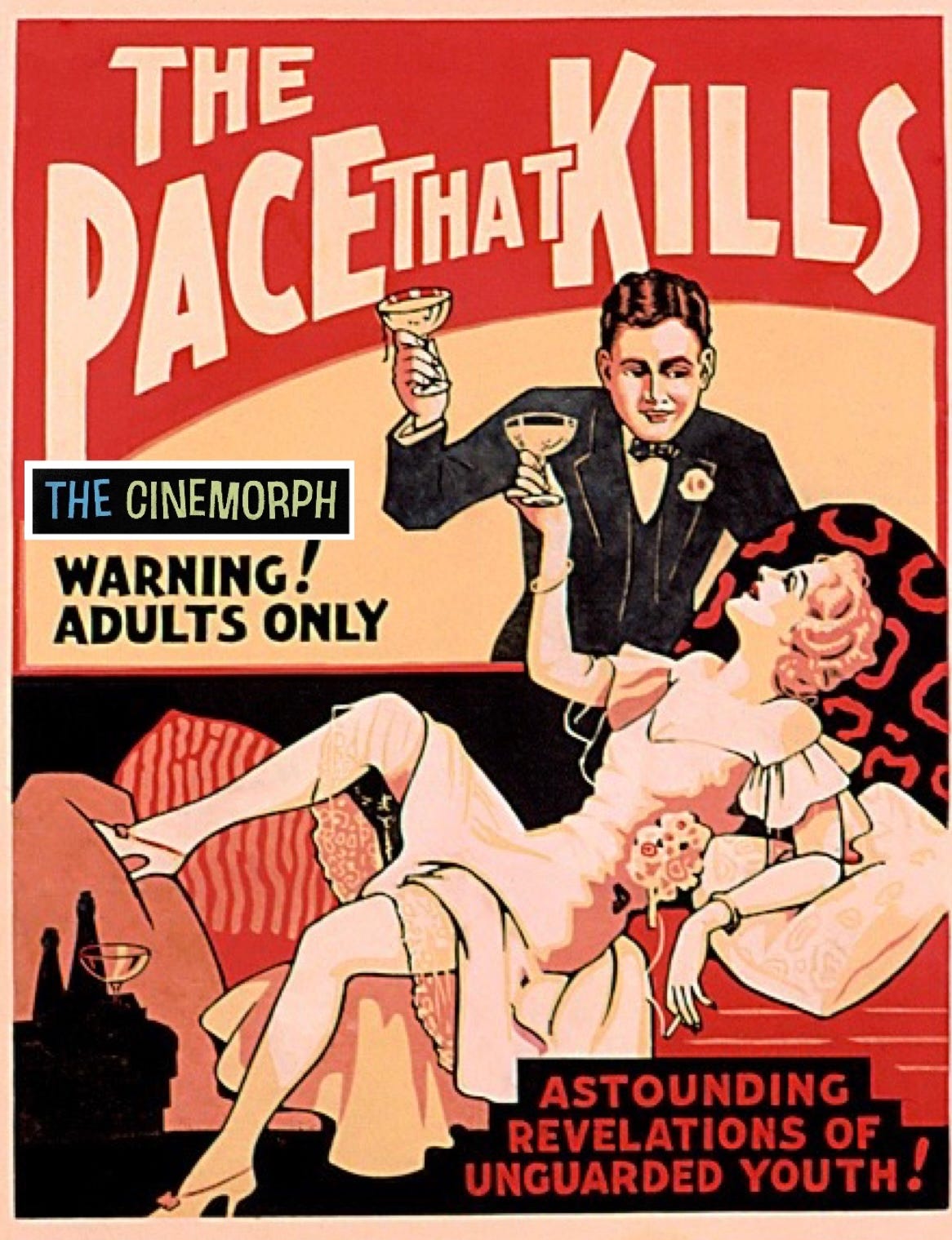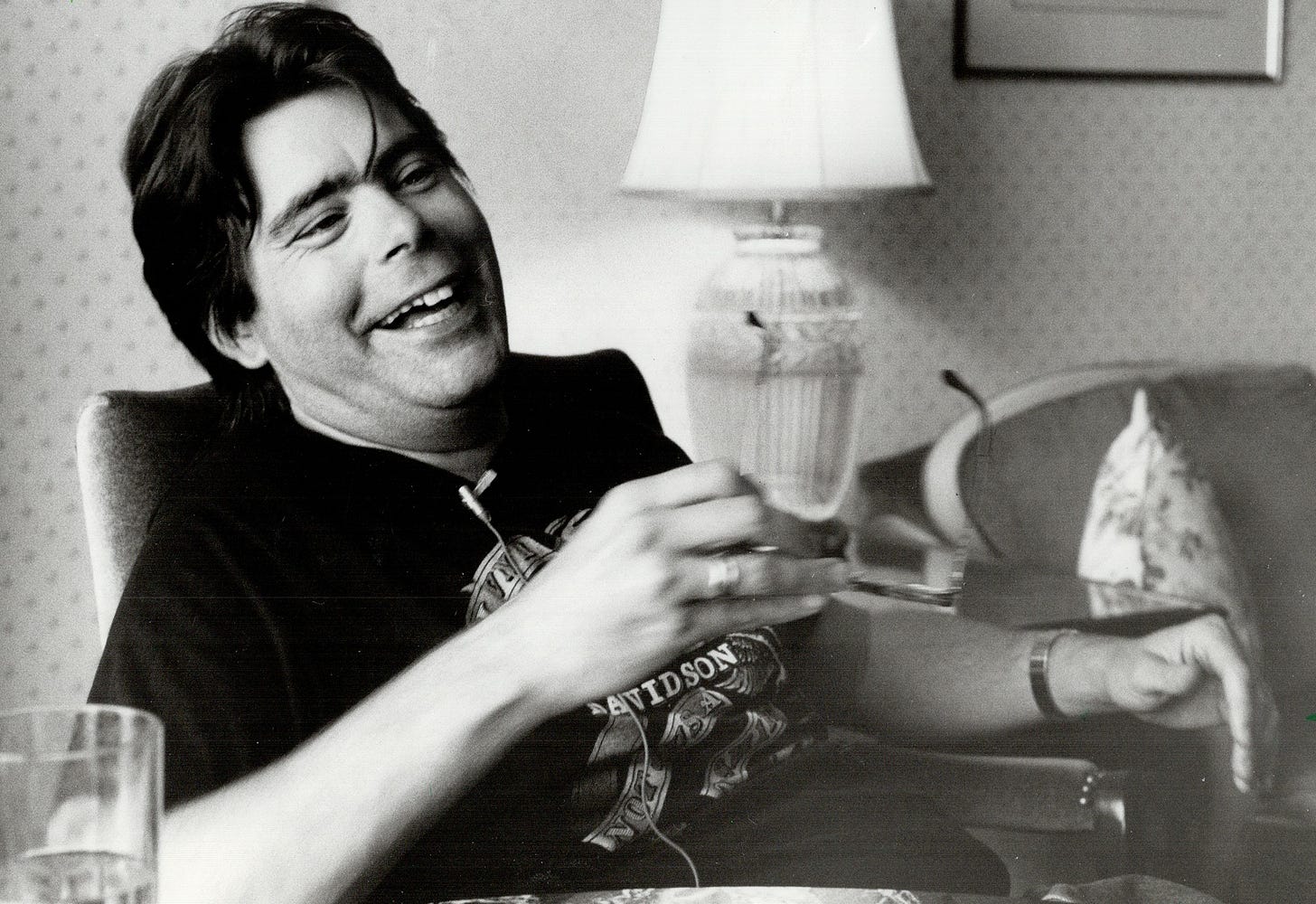Under The Influence, Pt. 2
Maximum Overdrive, Stephen King's only directorial effort, puts the lie to the idea of better living through chemistry.
In 1980 Stanley Kubrick released his adaption of Stephen King’s The Shining. Now considered a classic, critics at the time hated it. Pauline Kael panned it in The New Yorker, blaming Kubrick’s “absorption in film technology” for “distancing’ the audience. The Washington Post’s Gary Arnold wrote, “I can’t recall a more elaborately ineffective scare movie.” Even Variety, pulling no punches, wrote, “The crazier Nicholson gets, the more idiotic he looks. Shelley Duvall transforms the warm sympathetic wife of the book into a simpering, semi-retarded hysteric.”
Don’t pull your punches Variety. Tell us what you really think.
Time has been kind to The Shining, with many of those same publications now routinely referring to it as a cinematic touchstone. One person who didn’t like The Shining when it was initially released, and who still doesn’t like it, was the author of its source novel, Stephen King. Over the years, King has not been shy about his opinion of the film, calling it cold and likening it to, “a big, beautiful Cadillac with no engine inside.”
After The Shining, King began wondering if maybe he could do a better job turning Stephen King novels into Stephen King movies. That said, he did not leap right away. Eventually, Dino De Laurentiis, the maverick film producer who had already adapted The Dead Zone and Firestarter, picked up the rights to King’s short story Trucks and pitched the author on directing the film version. According to Eric Eisenberg’s article, Adapting Stephen King’s Trucks, in CinemaBlend, the author’s first response was, “No thanks.”
De Laurentiis, a larger-than-life character, suggested to King that he not decide right away. Maybe just give the issue a bit of a think. Not long afterwards, King found himself in North Carolina, where De Laurentiis had set up shop. King shot on stages adjacent to another De Laurentiis film in production at that time, David Lynch’s Blue Velvet.
King had never directed a film before which put him at an obvious disadvantage. Not insurmountable, but a big-budget, major studio release is probably not the best place to cut your directorial teeth. King would need two things: his wits and the full support of the cast and crew.
Stephen King during Maximum Overdrive's promotional junket.
Yeah, about those… To begin with, the crew, by and large, did not speak English. Ethan Alter, interviewing Maximum Overdrive co-star Yeardly Smith for Yahoo Entertainment News, writes, “though the film was shot in the U.S., the entire crew had been brought over from Italy by producer Dino De Laurentiis.”
Yeardly Smith added, “We had a translator on set who would say to Stephen: ‘What would you like to do?’ And then Stephen would say, ‘I want to do this,’ and then the guy would translate to the Italian crew and the Italian crew would discuss it. We must have added on a week-and-a-half in shooting in time just for translation alone.”
As for King having his wits about him, the author has written unflinchingly about his struggles with addiction. In his excellent quasi-memoir On Writing, he notes, “By 1985 (the year he made Maximum Overdrive) I had added drug addiction to my alcohol problem, yet I continued to function, as a good many substance abusers do, on a marginally competent level.”
Unfortunately, he needed to be more than “marginally competent” to rise to the challenge of directing his first movie with an Italian-speaking crew. “Marginally competent,” could be used to describe the film as well, but audiences expected more.
King has been clean and sober for years and years and is blunt in his appraisal of his first (and to this date only) directorial effort. “It’s a moron movie.” He has reportedly, and repeatedly, apologized to the film’s star, Emilio Estevez.
But time has been kinder to Maximum Overdrive than its director has been. As The Shining has been re-appraised as a classic of its genre, Maximum Overdrive is now regarded as a must-see, albeit in the “so bad it’s good,” vein.
I’m not sure that’s what King had in mind.
A man with an outrageous accent discusses King's onset of sobriety.





